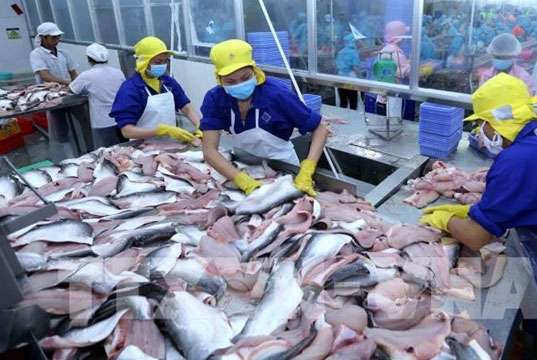Share this
Fish imported from China now control 83 per cent of the Kenyan market, data from the State Department of Fisheries show.
It shows the value of fish imported from China grew by 25 per cent to hit a historic high of Sh2 billion last year amid rising disquiet from local traders who have been edged out the market by the cheaper supplies.
Chinese and Kenyan businessmen shipped in 14.8 million kilogrammes of the delicacy from China to Kenya last year, valued at Sh2 billion, up from Sh1.5 billion in the previous period.
This has increased China’s market share from 70 per cent in 2020 to 83 per cent, as the Asian nation squeezed out South Korea, Thailand, Tanzania and Uganda from top source markets in the fight for the Kenyan consumer.
China, which is already Kenya’s biggest source of imports for household goods and electronics, is racing to bag a larger share of food exports into the continent including rice and manufactured edible products.
In total Kenya imported fish worth Sh2.47 billion last year from the 19 sampled countries, a 10 per cent jump from Sh2.2 billion in 2020, to bridge the growing deficit due to dwindling stocks from major domestic sources such as Lake Victoria.
Other source markets were Norway (Sh96 million), Tanzania (Sh92 million), India (Sh78 million) and Uganda (Sh57 million).
Industry numbers show the value of fish imports has been rising steadily in the past four years, except in 2020, when it fell marginally on the back of Covid-19, as the Chinese take advantage of their cheaper supplies to gain a foothold in the Kenyan market.
Controversy over Chinese fish flooding local markets caused diplomatic unease between Nairobi and Beijing in 2018 when President Uhuru Kenyatta said Kenyan government officials should find ways of curtailing the imports.
The data from fisheries indicate that the country brought in 19.6 million kilogrammes of fish last year worth Sh2.5 billion with China accounting for Sh2 billion of the total consignment that was shipped in the country.
In 2018, Mr Kenyatta said it was not possible for Kenya to import fish when local traders have them in plenty locally.
“I have been told about the imported fish from China. It is not possible that we import fish when our local traders are here,” said Mr Kenyatta then at the Strathmore University during the 2018 SMEs conference.
On the other hand, fish exports grew significantly with the country recording Sh3.4 billion in exports in the review period, up from Sh2.7 billion a year earlier.
The Democratic Republic of Congo was the leading export destination having shipped in fish worth 174 million followed by Italy at Sh663 million with China coming third at Sh124 million.
Kenya has an annual deficit of 365,000 tonnes of fish against a demand of 500,000 tonnes, which can only be filled through imports.
State officials have used this argument as a basis for justifying imports, arguing that fish from China cannot be stopped on this account.
“We do not produce enough fish currently to meet our needs. It is a fact that we currently do not have enough hence need to import in order to meet the growing demand,” said the Department of Fisheries.
Previously, there have been health concerns over the Chinese imports, with a joint research in 2018 between The East African newspaper and the University of Nairobi (UoN) last year showing traces of toxic metal in the fish.
Samples of fish purchased from a wholesale dealer at Gikomba market, the largest open-air fish market in Kenya, were tested by the UoN’s laboratory for residue and drug analysis.
The tests revealed that the commodity had traces of lead, mercury, copper and arsenic, though in levels termed permissible by the World Health Organisation norms.





















